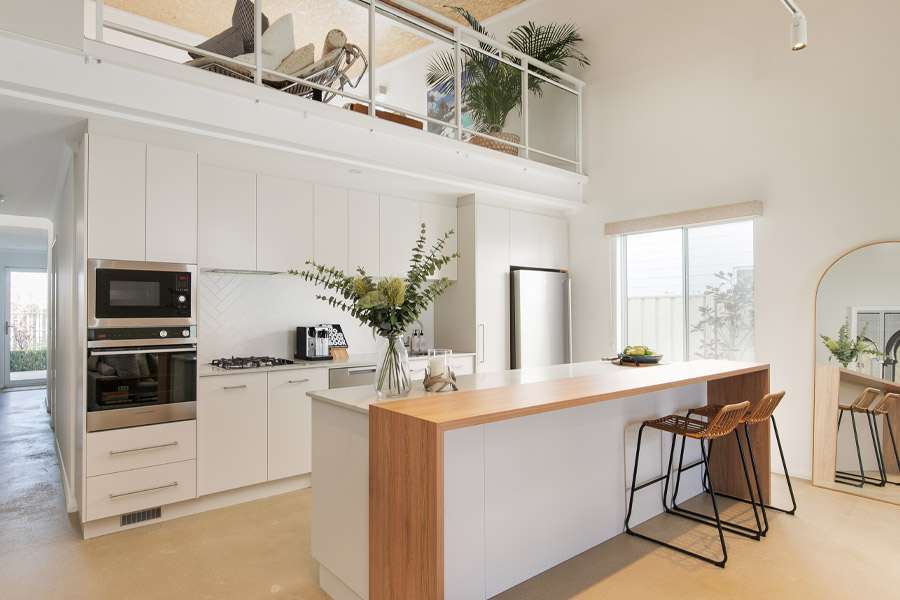In today’s environmentally-conscious world, designing a sustainable kitchen renovation is not only beneficial for our planet but also enhances the value, style, and function of your culinary space. At Azztek Kitchens, we believe there’s no compromise in achieving luxurious and functional kitchen renovations while also reducing your environmental footprint. Our highly experienced team is committed to delivering the full kitchen renovation experience with a focus on incorporating eco-friendly practices and materials, resulting in a space that you not only treasure but contributes towards a sustainable future.
In this informative blog post, we will explore a range of aspects and considerations entailed in a sustainable kitchen renovation. From selecting energy-efficient appliances and eco-conscious materials to implementing green design practices and waste reduction strategies, Azztek Kitchens’ expert team will provide insider tips and valuable guidance on creating an environmentally responsible kitchen without sacrificing quality or style.
1. Selecting Energy-Efficient Appliances: Investing in Your Future and the Planet
A significant way to reduce your kitchen’s environmental impact and save on long-term energy costs is by investing in energy-efficient appliances. These high-performance devices not only consume less energy but often contribute to enhanced functionality and ease of use.
When selecting energy-efficient appliances for your sustainable kitchen renovation, consider the following:
- Look for energy rating labels: In Australia, appliances are rated on a scale of one to six stars based on their energy efficiency, with six stars representing the highest level of efficiency. Use this information to guide your appliance choices.
- Choose appropriately sized appliances: Opt for appliances that are the right size for your usage habits, as oversized or underused appliances may consume more energy than necessary.
- Prioritise water-efficient fixtures: Consider installing water-saving kitchen taps, such as aerators or sensor-based systems, to minimise water wastage without compromising functionality.
2. Incorporating Eco-Conscious Materials: Style Meets Sustainability
Selecting sustainable, eco-conscious materials for your kitchen renovation is another essential step in designing an environmentally friendly space. By choosing products that come from renewable, recycled, or low-energy sources, you can create a stunning visual impact while reducing your environmental footprint.
Explore the following eco-conscious materials for your kitchen renovation:
- Recycled materials: Consider incorporating recycled materials, such as reclaimed wood or recycled glass, for your benchtops, cabinetry, or splashbacks. These materials not only contribute to a unique design aesthetic but also reduce strain on natural resources.
- Sustainable timber: Opt for sustainably sourced timber options, such as Forest Stewardship Council (FSC) certified products, for your cabinetry or flooring. These timbers not only support responsible forest management but also create a warm and natural atmosphere in your kitchen.
- Low VOC paint and finishes: To minimise indoor air pollutants and the impact on the environment, select paint, adhesives, and sealants with low or zero volatile organic compounds (VOCs).
3. Implementing Green Design Practices: Maximising Natural Light and Ventilation
Enhancing your kitchen’s natural light and ventilation can greatly improve energy efficiency, reduce the reliance on artificial lighting and climate control devices, and create a more comfortable and inviting space.
Utilise the following green design practices for a sustainable kitchen renovation:
- Maximise natural light: Make the most of any available natural light by rethinking your kitchen layout, installing skylights or larger windows, or choosing light-coloured finishes that reflect sunlight.
- Improve ventilation: Encourage natural airflow within your kitchen by incorporating windows, vents, or well-positioned doors. This not only reduces the need for air conditioning but also helps to maintain optimal indoor air quality.
- Use energy-efficient lighting: Opt for LED or energy-saving bulbs for your lighting fixtures, as these consume significantly less energy compared to traditional incandescent bulbs.
4. Embracing Waste Reduction Strategies: The Eco-Friendly Renovation Approach
During and after your kitchen renovation, adopting waste reduction strategies can lessen your environmental impact and contribute to a cleaner, more sustainable world.
Consider the following waste-reduction strategies for your sustainable kitchen renovation:
- Responsibly dispose of old materials: Ensure your old kitchen components are correctly disposed of, recyclable materials are recycled, and hazardous waste is sent to designated facilities.
- Invest in long-lasting, quality products: Opt for durable materials and appliances that are reliable and designed to last, minimising the likelihood of frequent replacements and associated waste generation.
- Kitchen composting: Incorporate a kitchen composting system, such as a benchtop compost bin or a worm farm, to recycle your food waste and create nutrient-rich fertiliser for your garden.
Trust Azztek Kitchens for Your Sustainable Kitchen Renovation Dreams
Embark on your sustainable kitchen renovation journey with Azztek Kitchens by your side, offering our expertise and commitment to eco-conscious practices that elevate your culinary space while also caring for our planet. Trust in our ability to deliver stylish, functional, and environmentally responsible kitchen solutions that cater to both your desires and the sustainable future we all strive for.
At Azztek Kitchens, we believe that luxury and sustainability can coexist, resulting in breathtaking kitchen transformations that demonstrate our dedication to the environment. Connect with our passionate team today and start creating your dream eco-friendly kitchen renovation, uniquely tailored to your preferences and values.










